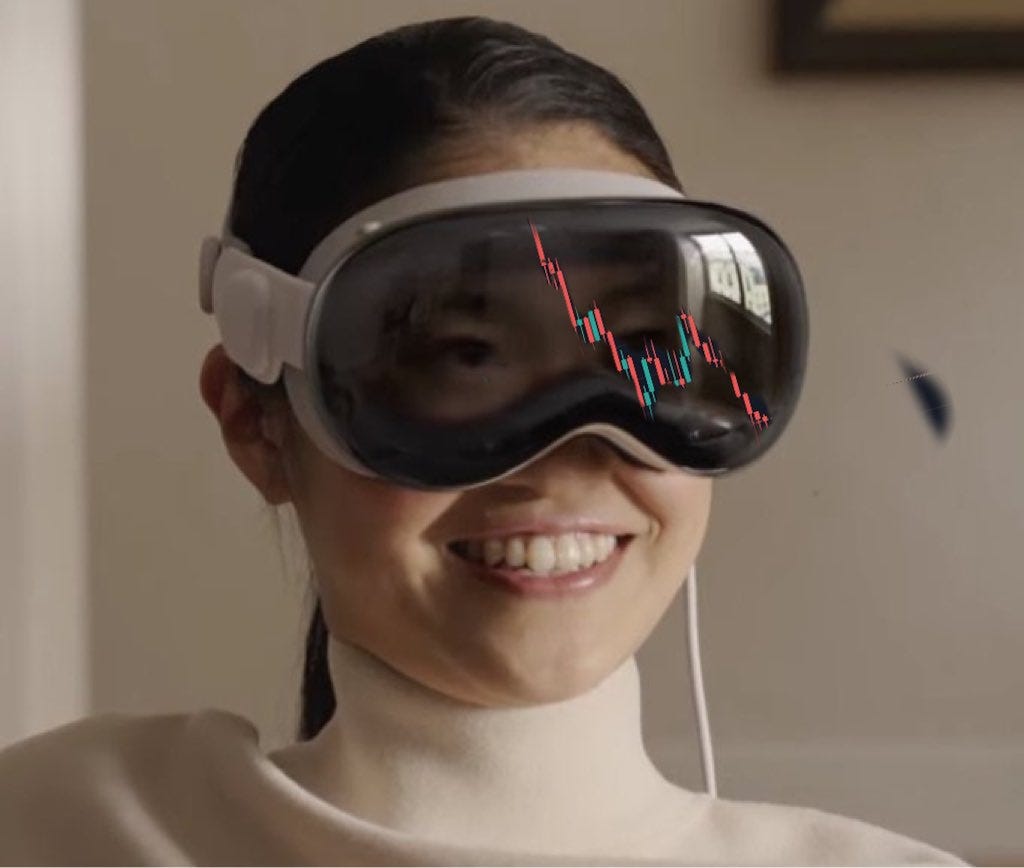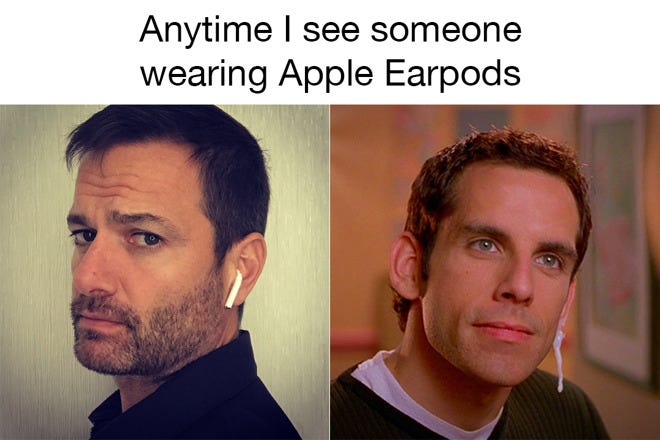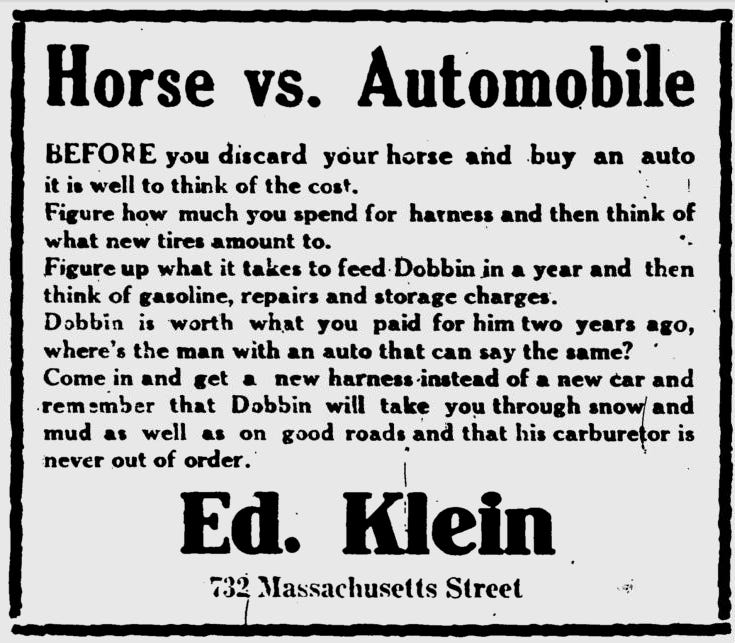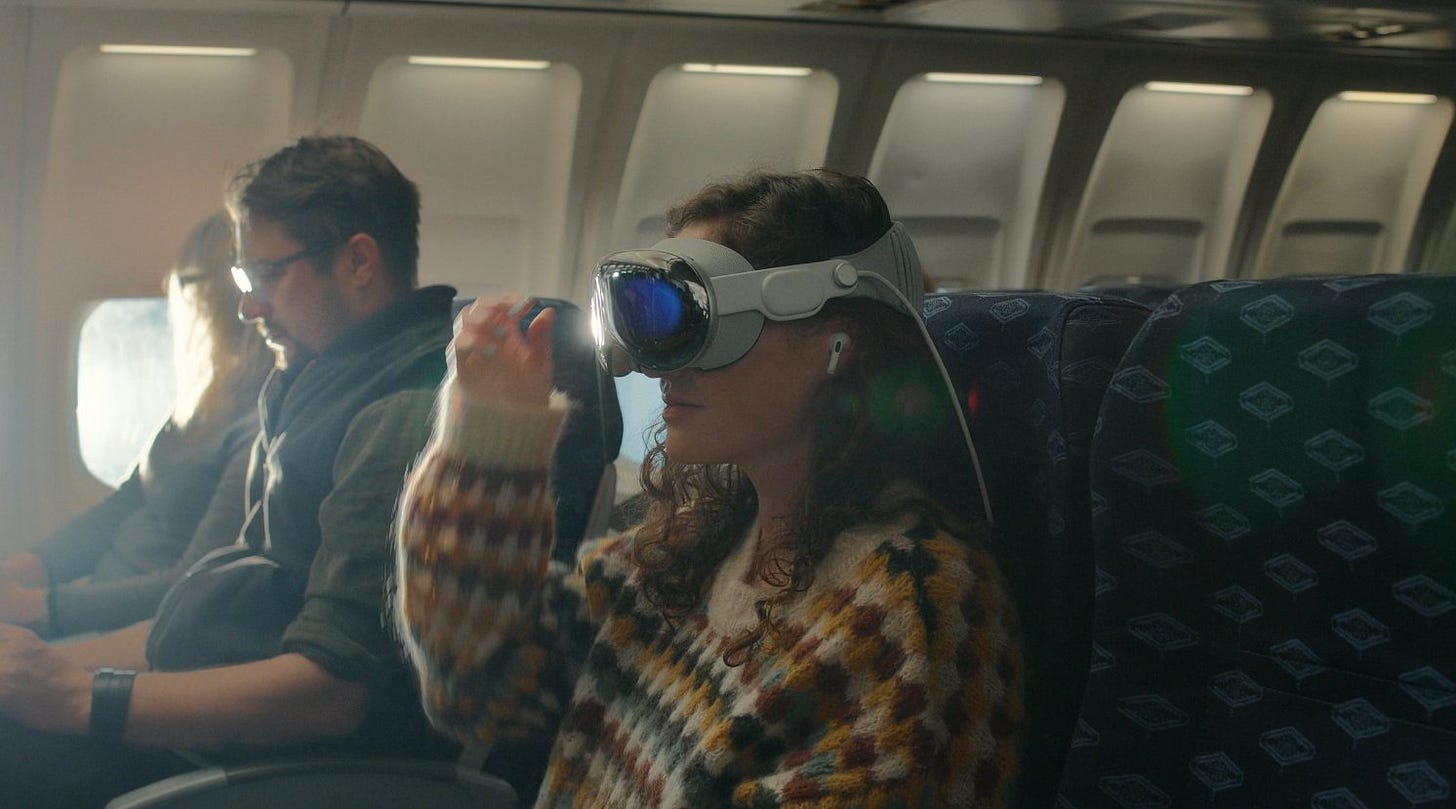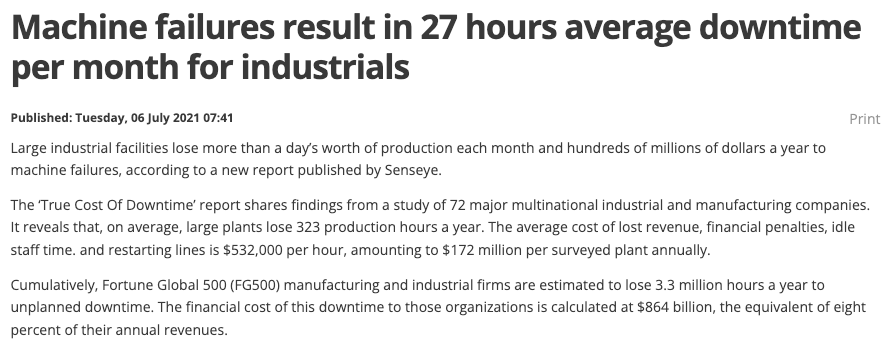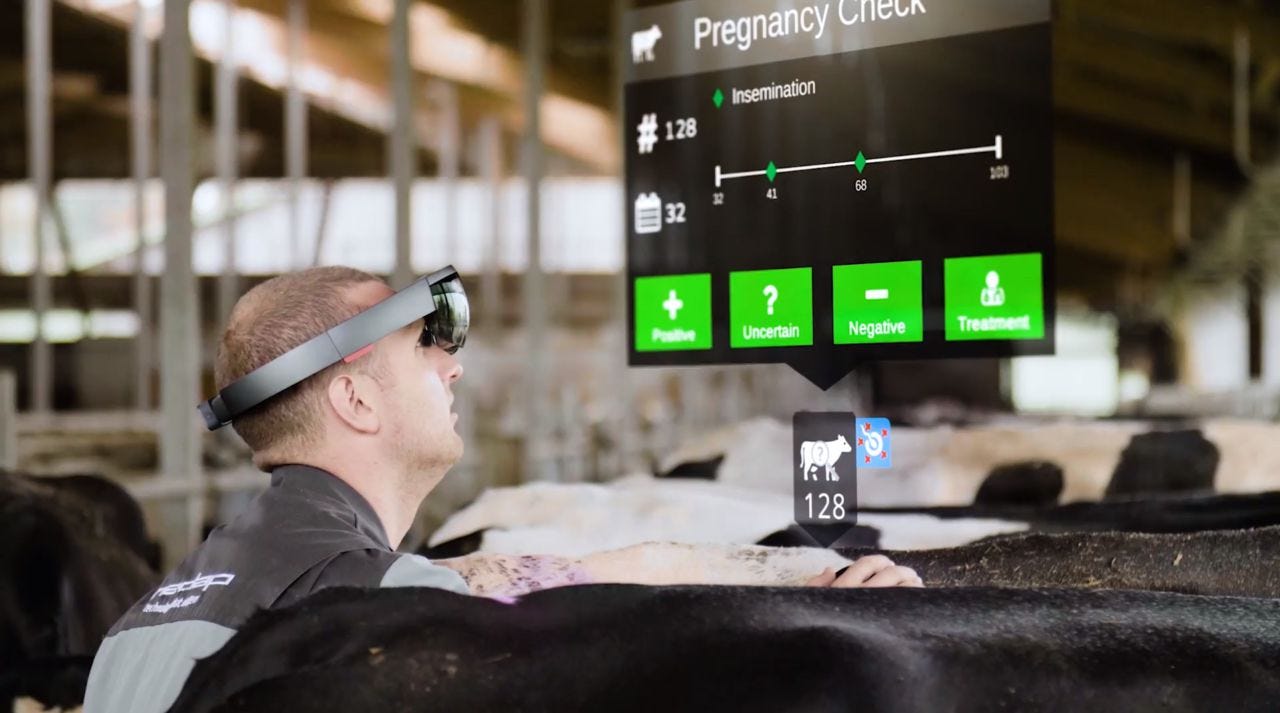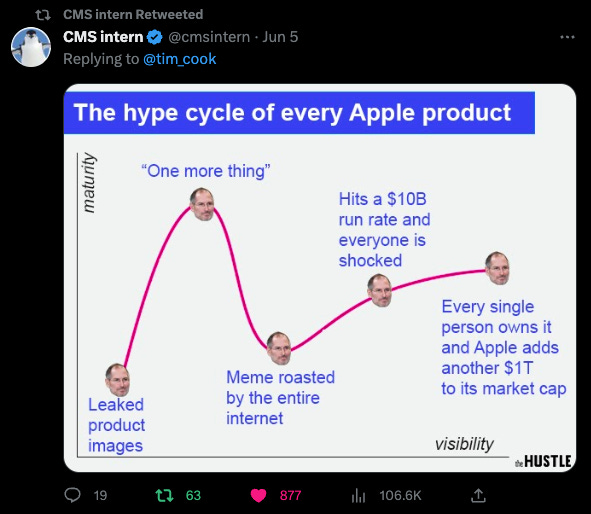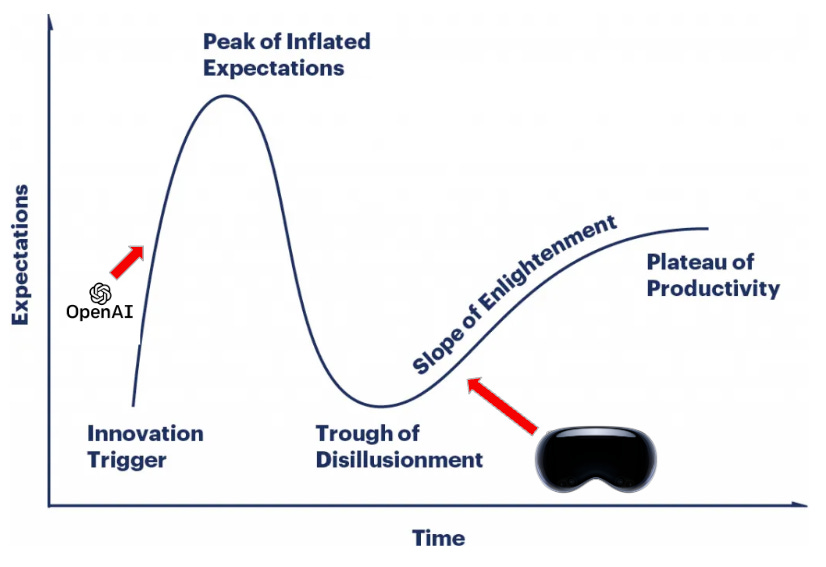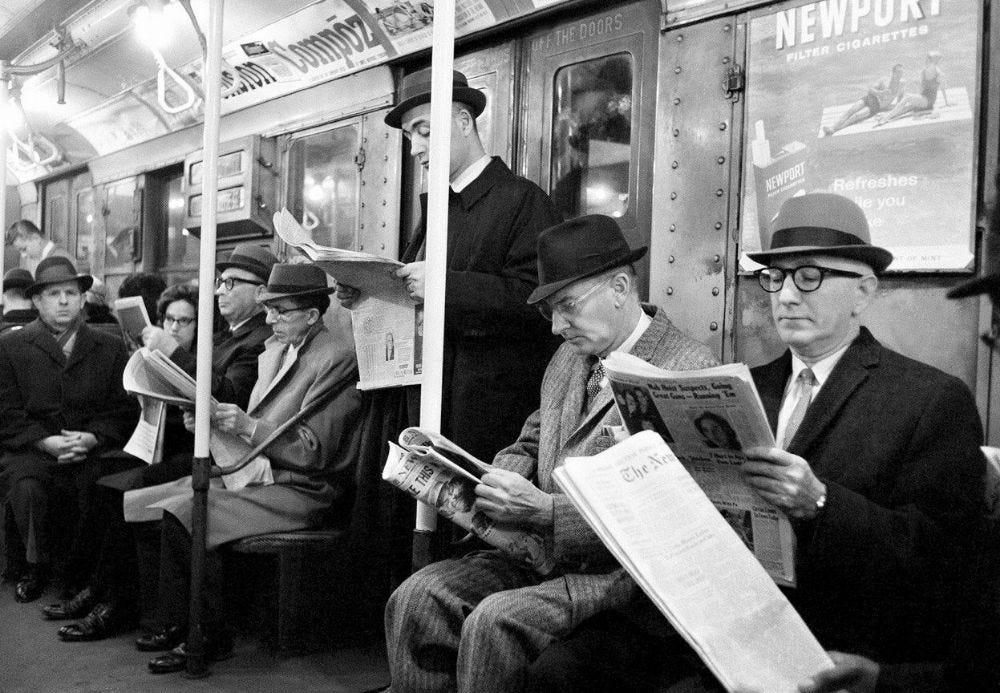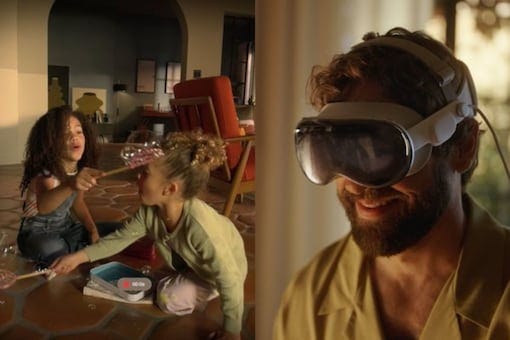The Future
Is it over or are we back?
Wow, this week has been a weird one.
We've seen a mishmash of new storylines, starting with the unveiling of the Apple Goggles and everyone collectively losing their minds, and ending with the SEC turbo-nuking crypto and causing a wave of hysteria to sweep Twitter.
I can't remember the last time I saw so many crazy blanket statements, wild takes, and general doomerism around what the future might look like.
So, I'm going to add fuel to this fire and provide you with my entirely unqualified and poorly thought-out thoughts on a variety of topics!
Side note - I want this post to cover a number of aspects including Augmented and Virtual Reality, AI developments, and Crypto, and how they all merge together. However, when I started writing, I quickly realised this would not be a short post, and collectively the readers of this blog have an attention span of about 3 minutes, which coincidentally is about 2 minutes longer than the average CT participant, so well done, you.
Anyway, to save your brains, I'm going to split this post into a three-part series.
Part I - The Metaverse is back?
My initial reaction upon watching the masterpiece of salesmanship that is the Apple WWDC event was that these Goggles were the beginning of the end of society.
In fact, at that very moment, the Tweet that I thought summed it up best described it as "A prison of endless possibilities."
Yes, of course, you can do some quite cool things with this shiny new headset, but if everyone loses touch with reality and spends their entire lives further entangled in their devices, the collective mental health of society will surely decline. Surely, no one wants to be even more absorbed by their screens and lose complete awareness of their surroundings?
But then I considered that maybe I'm just being a pessimistic doomer boomer, and that every person over the age of 26 has scoffed at every new innovation throughout all of human history.
When some young innovative Homo Erectus first discovered fire, I bet even the Tribal Elders had visions of their village burning and attempted to ban it and proclaim it as a danger to their ancestry and culture.
Remember memes like this from a few years ago?
Or headlines like this from a generation gone by?
And a few generations before that, they couldn't comprehend that cars would one day replace horses.
So, when I find myself thinking that something will never take off because it feels alien compared to how we live life today, I try to stop myself and dig into why I really think that and consider how I might be wrong. Because history is littered with examples of humans being largely incorrect when it comes to predicting future trends.
Perception often does not equal reality when it comes to preconceived judgments.
So what are the possible upsides from these Apple Goggles?
I can imagine a world where these Apple goggles enable focus mode, where you can choose a specific task. Maybe it's a monitor, maybe it's a conversation you're engaged in, maybe it's a blank piece of paper that you need to write words on to meet your stupid deadline you set yourself six months ago that has been tormenting you ever since.
Maybe these goggles can visually enhance the particular thing you're supposed to be focusing on, while dimming or augmenting your surroundings to something peaceful, thus preventing distraction.
As someone who will literally stop writing mid-sentence and completely lose my train of thought because a cat outside meowed in an interesting manner, a focus aid such as this would be greatly appreciated.
Flying on a plane will be infinitely better when, rather than straining your eyes watching the grainy screen, being interrupted frequently by the flight attendants trying to sell you overpriced perfume at 40,000 feet in the air, you can instead have your own private theater in front of you, watching whatever movie takes your fancy.
People who live in small apartments or travel a lot for work and spend their time in poorly equipped hotels can have an amazing home theater or a world-class workstation regardless of their room size.
Productivity could be greatly enhanced if the world embraces these types of headsets. Truck breakdowns, crane malfunctions, or oil rig issues result in huge losses each year for companies in the form of downtime. Each day that specialist equipment is broken causes a bottleneck and lost salaries for employees who cannot work.
Specialist equipment requires specialists to repair it, and typically these people do not exist in great numbers or do not reside in the remote area where a truck carrying 100,000 refrigerated pharmaceuticals breaks down and the load will be rendered spoiled and worthless if it's not up and running within hours.
AR headsets can solve these problems. Instead of paying tens of thousands to fly out well-trained individuals to remote places to diagnose and fix complex issues, each local workshop could have a pair of AR goggles. These goggles could directly stream to a central office where specialists or even the designers of the original product can provide real-time technical assistance.
Apparently they can even be used to help check if cows are pregnant.
This would actually be super cool for DIY projects.
Instead of watching a YouTube tutorial on how to build your Ikea bed and almost ending your 6-year relationship when you and your partner give up 12 hours in and sleep on the sofa instead, AR goggles could be the answer.
The goggles could have an app that scans the various nuts and bolts and highlights the ones you need along with the required tools. This would save a ton of time and allow many men to pretend they are more skilled than they really are!
I know this is probably a rather dull point to focus on when we literally have magic goggles coming soon that allow you to have a cinema in your bathroom, but I think the productivity improvements resulting from these headsets are something that has been overlooked by most commentators as they instead focus on the dystopian breakdown of society. Just as they did when kids started playing online with friends instead of going outside and being mugged in their local park by older kids.
This all sounds great, but will people actually want to use it?
I think the answer is no, and then suddenly yes.
CMS Intern summed it up best with this Gartner Hype Cycle chart.
This was the exact reaction when they unveiled AirPods. People mocked them, said they were dumb, and yet a few years later, AirPods ALONE generate more revenue than Twitter, Spotify, and Square combined and in 2020 were less than 10% away from flipping Netflix. Wild stuff.
For a better summary than I can give, check out CL's timeline, who's been bull-tweeting about VR all week.
After spending some time thinking about it, I think he's correct. Last year, the average daily social media usage increased to 147 minutes per day, and in the USA, the average adult spends over eight hours interacting with digital media daily.
This is a trend that's truly been in a supercycle for the past decade and shows no signs of slowing down. People are simply more plugged in than ever before.
I tried to think about it in my own life and wondered how often I am not engaging with some form of technology.
The answer was kind of depressing. Even when I'm working out or on a long run, I'm usually listening to some kind of music or a podcast. If I'm at home, I'm likely working, on Discord or Twitter, and if I'm just relaxing, I'm probably watching YouTube.
Even during time spent with friends, we're usually interacting with some element of tech, whether it be watching football or Googling dumb questions to ask each other such as "What is the biggest animal you think you could beat in a fight?"
There is actually very little time spent in my day where I'm truly technology-free and alone with my own thoughts. I'd imagine most of you are the same.
I do think that as long as the experience is enjoyable and an improvement on what we have today, it won't take long for the overton window to shift, and suddenly, before we know it, VR & AR headsets are adopted by the masses.
So my prediction is depicted on the chart below. I think AI right now is going through its hype cycle moment (more on that in the next post), and AR/VR is probably about to explode onto the scene with real and meaningful use cases.
It's probably a contrarian bet to make right now, but I think there's a reasonable chance that AR/VR innovations will make a bigger impact on the way we live over the next 3 years than AI does, and products like the Apple Vision and Meta Quest 3 will see huge levels of adoption.
Isn’t this sad and bad for humanity?
Probably, but then again, so is what we're doing now.
It's probably not great that we're spending so much time online or on social media, and my intuition leads me to believe that it's probably part of the reason mental health is suffering globally.
But do I think these goggles will make this worse?
Again, probably, but also maybe not?
It might be pretty depressing for those around you. I imagine it'll be pretty sad for some kids growing up who rarely see their parents' faces because they're constantly plugged into their headsets.
Although how many children right now are just observing their parents endlessly scrolling through Facebook when all they want is to be shown some attention?
I can see a world where people susceptible to isolation can become even more isolated using these goggles. Maybe it's even more comfortable to spend time at home where you have a giant cinema-sized screen strapped to your head than it is to venture outside and interact with people who might judge you for eating too much cake over the past year.
Maybe this isn't great for you in the long run, and years of social isolation probably have a negative impact across all areas of life.
However, maybe the opposite is true. Maybe having actual good quality VR worlds where you are interacting online with other real-life human beings in a digital setting is actually a blessing in disguise for those with social anxiety.
You can design your avatar to look exactly how you want, so there's no need to be self-conscious, and it's possible that social reputation online can be more meritocratic than it is in real life, where your outcomes can be hindered by being unfortunate enough to be born looking a certain way.
Maybe it opens up the opportunity to form relationships with wider groups of people from different backgrounds and experiences. If you have a weird niche interest that makes you happy, there are probably tons of people online who feel the same way. It's probably less likely you'll find people who enjoy this in some tiny town in rural Wyoming where you just so happened to be born.
With any new technological innovation, there come great advancements and also great struggles.
The challenge for us as individuals with willpower and a brain is to realise that we are in control of this. We can choose how much time we spend online. We do have the option to go outside and climb up a hill. We won't die if we get slightly out of breath. But we also won't lose our mind if we spend a few hours a week using this headset to do all the cool, fun new things it enables.
The future is going to get increasingly weird but also increasingly magical. Let's experience the best of it while also remembering to do all the wonderful things that exist outside and away from our screens.
Thanks for reading and remember to tune in next week for part two where I try to predict what AI will bring!


